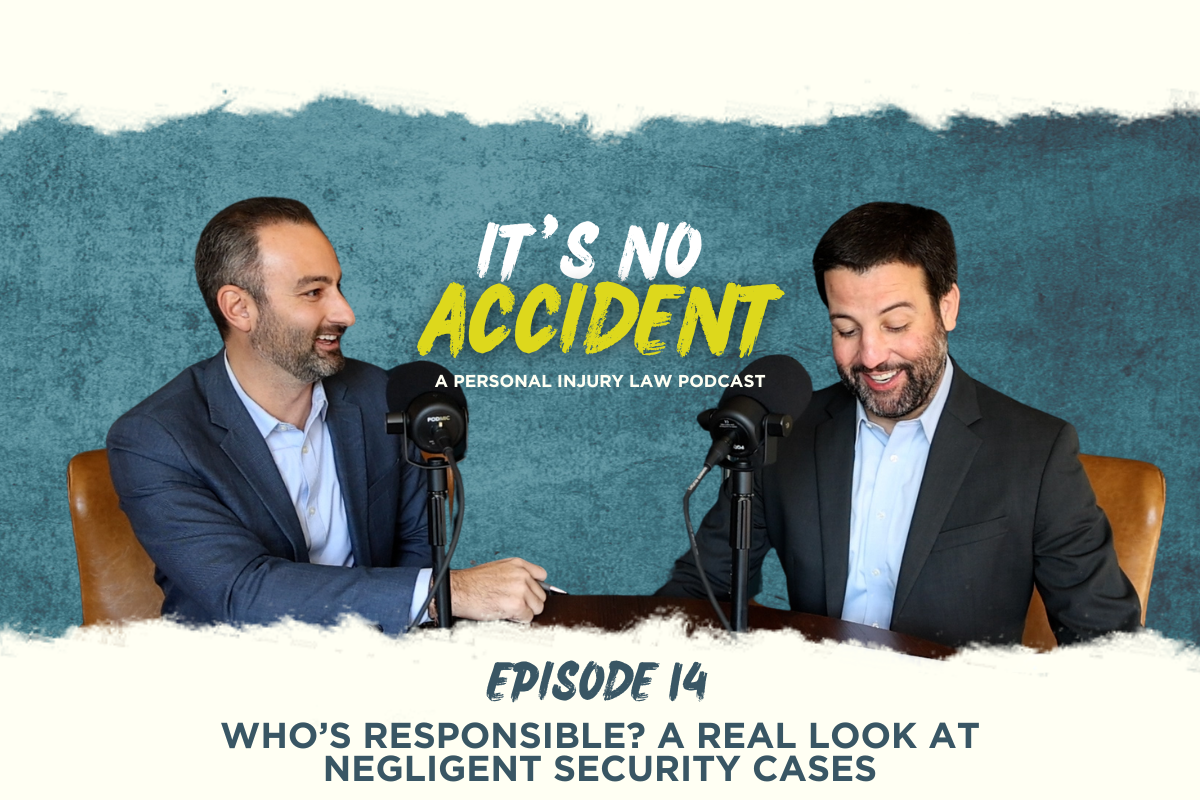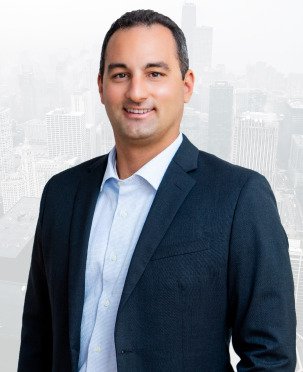
Podcast Description
In this episode of It’s No Accident, Mark and Jaeson dive into the growing issue of negligent security cases in Florida. As gun violence and crime continue to rise, they discuss how property owners can be held accountable for failing to implement basic safety measures—like better lighting or hiring private security—to protect their residents and guests. They also break down what makes a negligent security case viable, from uncovering prior incidents to creating safer environments.
The conversation heats up as they examine Florida’s recent legal changes, which now allow juries to assign blame to the perpetrator of a crime. What does this mean for property owners, and how can they protect themselves from liability?
Episode Transcript
Alright, one of the topics we want to talk about today that has come up is negligent security cases. These are cases we’ve handled in our office before, and really, they’re an offshoot of a typical negligence case. They became more prevalent as gun violence became more common—something we’re seeing in the news nearly every week or month.
In these cases, someone gets hurt on another person’s property due to physical violence, sexual violence, or gun violence. The people affected often look for accountability, and while the obvious blame falls on the direct perpetrator—the shooter or assailant—we also ask whether more could have been done to prevent the incident. Was there something the property owner could have done to keep the premises safe?
Mark, can you talk a bit about what we look for in a negligent security case and what elements need to be in place for a case to be viable?
Sure, absolutely. Like you said, these cases have definitely become more common. Most of the ones we’ve handled have involved apartment complexes or businesses like retail stores. The key element in these cases is foreseeability and notice. When we’re investigating a case, we look at whether there were events leading up to the incident—like shootings, robberies, or break-ins—that should have put the property owner on notice that they needed to take action to protect their guests.
The strongest cases are the ones where there’s a history of criminal activity and the property owner did nothing—no increased security, no warning to tenants or patrons. It can look like they’re essentially leading customers into a dangerous situation with no warning or protection.
And it’s not just whether violence occurred on that specific property. We also look at the surrounding area. If five nearby properties had ten shootings, and this property has had none, but also hasn’t added any security measures, that’s a red flag. Property owners can’t claim ignorance just because nothing has happened on their exact premises—they’re still on notice based on what’s happening around them.
It’s similar to the “first bite rule” in dog cases, where the owner claims they didn’t know the dog was dangerous. In negligent security, the law says property owners should be aware of what’s happening around them and take reasonable steps to protect visitors.
When we get a potential negligent security case, one of the first things we do is search crime records. We look at the address and run a report, typically through the local police department, to see what kind of criminal activity has happened within a certain radius over the past 3 to 6 months. That gives us a starting point to determine if the owner should have foreseen the danger.
If a business owner were consulting with a plaintiff’s attorney about whether they need to improve security, the basic advice would be: the higher the risk, the more precautions you should take. For instance, if you own a bar known for frequent fights, your security should be more robust than a quiet cocktail lounge downtown that hasn’t had an incident in 15 years.
It’s a balancing act. Businesses can’t guarantee safety in every situation. They don’t have a crystal ball. But if they’re in a high-crime area, they should take steps like improving lighting, hiring private security, or coordinating with law enforcement. And yes, sometimes bad things still happen even when precautions are taken. But most of the cases we see involve repeated criminal activity and the business doing nothing.
There are safeguards for business owners, too. In Florida, there’s a specific law for convenience stores. If they take certain measures—like installing security cameras, having a height marker at the door (which is why many stores have them), and meeting other safety requirements—they get the benefit of a legal presumption that they were not negligent. There are about 8 to 10 items on that checklist, and if they meet them, it strengthens their legal defense.
That checklist gives store owners a roadmap so they don’t have to guess what’s required. Also, in March 2023, Florida passed tort reform laws that made changes to how negligent security cases are handled at trial. Before, if a plaintiff had already settled with the assailant or wasn’t actively suing them, that person wouldn’t appear on the verdict form. Now, under the new law, the assailant can be placed on the verdict form even if they’re not part of the current lawsuit.
That change matters because jurors are now asked to assign percentages of fault. For example, they might say the apartment complex is 50% at fault, and the shooter is 50% at fault. The hope from the defense side is that jurors will assign more blame to the assailant, which reduces the business’s liability.
The problem for plaintiffs is that even if they win a judgment against the shooter, there’s usually no way to collect. The assailant rarely has assets or insurance. So we focus on the property owner because they created an environment where the crime could easily occur.
These cases are about asking: Did the business do enough? Did they take the proper steps to protect their guests given the level of risk? And if not, they may share in the responsibility for what happened.


